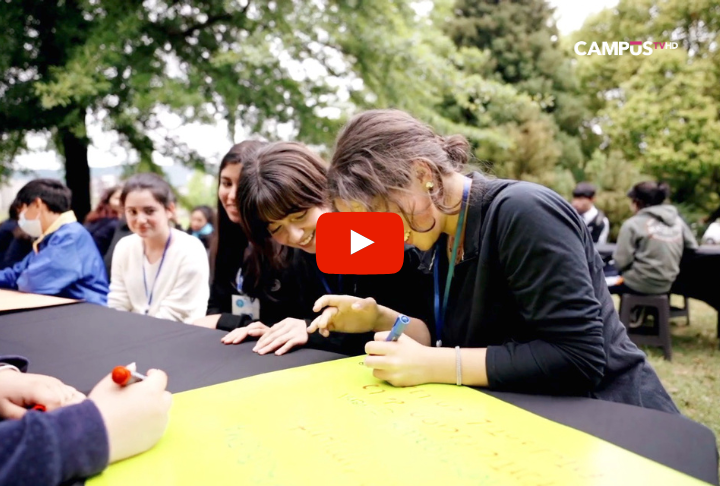The initiative seeks to promote the socialization of knowledge and the installation of capacities in educational communities, with the purpose of strengthening scientific competencies in children and adolescents.
Claudio Pereira, Journalist UTalca.- The University of Talca renewed the execution of the Regional Associative Project Explora Región del Maule, a program financed by the Ministry of Science, Technology, Knowledge and Innovation, which aims to improve scientific education in educational communities.
The focus of the initiative, this time, is the generation of links between the scientific community and the school, mainly to promote vocations in these themes.
The General Director of Links with the UTalca Environment, Karin Saavedra, highlighted the link generated by the project between the scientific community and the school.
“We are convinced that Explora Maule will be a fundamental contribution to improving science education in the region, especially in those territories where the educational gap is greater. This allows us researchers to contribute from our work to promote the scientific vocations of Maule students”, he valued.
Among the gaps that Explora Maule seeks to solve are the low performance in science detected in the Simce and TIMSS tests in this territory, and the lack of access to scientific knowledge, which is observed in the National Survey of Social Perception of Science and Technology Explore.
For Sofía Valenzuela, Seremi de Ciencia de la Macrozona Centro Sur, the renewal of Explora Maule by UTalca is great news for the region.
«The University of Talca has extensive experience in liaison with the environment, has carried out various activities throughout these years, being present in all the communes of the Maule region, and has a team that has done an excellent job over the years. previous years, both with girls and boys, as well as promoting science and technology in the community”, he stated.
With the renewal of Explora Maule, the University of Talca will have financing of 580 million pesos for the period 2023-2024, to be able to implement a commitment to improve scientific education in the 30 communes of the Maule region, and close gaps educational, through the democratization of knowledge and the development of critical thinking in school communities.
New address
In this new stage, the project will be led by Leonardo Leottau, a doctor in electrical engineering with a major in robotics and machine learning, and former director of Technologies, Research and Platforms at the Mustakis Foundation, who will lead a multidisciplinary team with ten years of experience in the design of school innovation programs.
“We are happy to be awarded the Explora Maule project again. I especially highlight a fundamental concept for education, which is continuity, since it is not so usual to articulate long-term learning processes, which, as in this case, we have been carrying out for more than a decade”, expressed Leottau.
The new director stressed that this new stage, which considers an extension for two more years, is an “opportunity to reach more girls and boys from Maule with activities, experiences and methodologies that have been in development and continuous improvement for years. And of course, it will also allow us to innovate in new solutions to the educational problems of the territory together with our teachers”.
The project also promotes breaking down gender stereotypes and motivating girls, boys and young people to be interested in science and technology. To this end, a series of lines of work will be implemented, including the Early Age Inquiry Program (PIPE), the School Research and Innovation Academies (IIE), the ¡Explora Va! and the new scientific dissemination platform for the school world “Ramal”.
One of the challenges that Explora Maule has is reaching remote territories and working with educational communities with greater deficits in access to knowledge. In this sense, a network composed of more than 23 institutions of the CTI ecosystem was established, who will create an offer of learning activities to meet the needs of teachers and students.






![[Img #74664]](https://thelatestnews.world/wp-content/uploads/2024/12/James-Watson-The-controversial-genius-behind-the-double-helix-150x150.jpg)







![[Img #74664]](https://thelatestnews.world/wp-content/uploads/2024/12/James-Watson-The-controversial-genius-behind-the-double-helix-300x200.jpg)

